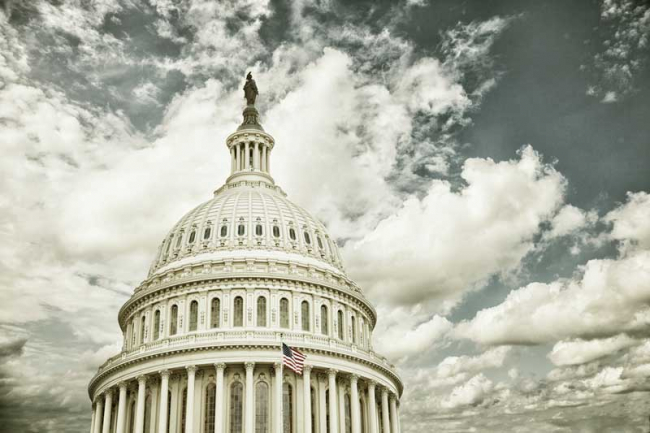BLOG
Tax Reform: 10 Talking Points in Favor of Preserving Like-Kind Exchanges

Early April is the expected date for committee discussions on a preliminary tax reform bill. Or is it May? Perhaps before the August recess?
That was the comical consensus I received after attending 17 meetings in Washington D.C. last week. Lately, when monitoring the news out of our nation’s capital, we’ve all become a bit skeptical of what defines “good reporting.” The proposed House tax plan labeled A Better Way is reported to have the full support of Republican lawmakers. However, some closed-door conversations with members of Congress last week provided me with an entirely different story.
Is it Really A Better Way?
The only real consensus is that A Better Way has a lot of unanswered questions for U.S. business owners. This 35-page document seems to gloss over the fact that business owners want more out of tax reform than simplicity and a lower tax rate. In order to grow, American business needs the ability to do things like expand operations, hire more people, acquire equipment, secure land and facilities, leverage debt fiscally and, when appropriate, be taxed fairly.
My meetings last week ranged from sit-downs with senior staff on the House Ways & Means Committee to heated discussions with notable elected officials who have never run a business. A reoccurring theme of these discussions was that “tax reform is complex.” Unfortunately, running a business is ALSO
complex, and business owners need varied financial tools to return value from their investments.
Keep Section 1031 of the Tax Code off the Table
Our elected officials must make the right decisions - not just popular decisions. My most important achievement last week was simply educating lawmakers and their staff about what some of the proposed tax reform components mean for businesses. 1031 exchanges play a vital role in our economy. In addition to supporting the fundamentals of strong tax policy, like-kind exchanges drive real growth by helping businesses acquire equipment, buildings and land. This 1031-induced growth also extends to the ancillary businesses and supporting vendors who provide goods and services to these growing companies. All of this business growth becomes contagious – in a very good way!
We always hear that “everything is on the chopping block” if we want to become competitive, grow the economy and encourage businesses to remain in the U.S. One thing that should not be under the axe is Section 1031. Approaching 100 years in our tax code, Section 1031 exemplifies exactly what the authors of tax reform desire to accomplish. When engaging with your members of Congress, remember some of these helpful talking points:
Reasons to Preserve 1031 Like-Kind Exchanges
- 1031 like-kind exchanges (LKEs) encourage investment and reinvestment in U.S. assets and make it easier for taxpayers to relocate or upgrade into assets that better meet their business needs.
- Section 1031 was enacted in 1921 for two primary purposes: to avoid unfair taxation of ongoing investments in property and to encourage active reinvestment.
- Section 1031 has survived numerous tax reform efforts for almost 100 years because it is based on sound tax policy that prevents taxation of cash flow when there is “continuity of investment” and because it stimulates the economy with transactional activity.
- LKEs substantially stimulate a myriad of industries, including real estate, construction, title insurance, mortgage lending, equipment manufacturing, transportation, energy and agriculture.
- LKEs ensure both the best use of real estate and a used personal property market that significantly benefits start-ups and small businesses. Eliminating LKEs or restricting their use would have a contraction effect on our economy by increasing the cost of capital.
- Without LKEs, businesses and entrepreneurs would have less incentive and ability to make real estate and capital equipment investments.
- The forced immediate recognition of gain upon the disposition of investment real estate and other capital assets would result in a higher cost of capital and greater reliance upon debt financing, deterring investment in new assets.
- Retention of Section 1031 is complementary to the immediate expensing of equipment and buildings proposal contained in the House Republican Blueprint. However, these proposals are not equivalent substitutes for the benefits generated by §1031, especially when viewed in conjunction with the non-deductibility of interest.
- Repealing or restricting LKEs would hamper the ability of businesses to be competitive in our global marketplace.
- LKEs are essentially revenue-neutral over the tax life of depreciable assets because gain deferred is directly offset by a reduction in future depreciation deductions available for assets acquired through an exchange.
Help Preserve 1031 Like-Kind Exchanges
You make a difference! Continue to stay engaged. Don’t assume that the writers of our tax code know what it means to run a business and grow our economy. YOU are an important conduit toward ensuring that the tools your business needs to be successful will be available to you moving forward. Please keep sending me emails and comments about how 1031s help your business. We’ve worked hard to get the attention of our representative government and we are making sure that your voice is heard in Washington.
Take Action Now
Visit the FEA Tax Reform portal where it’s easy to let your local members of Congress know that preserving Section 1031 of the U.S. tax code is important to you and your business.
